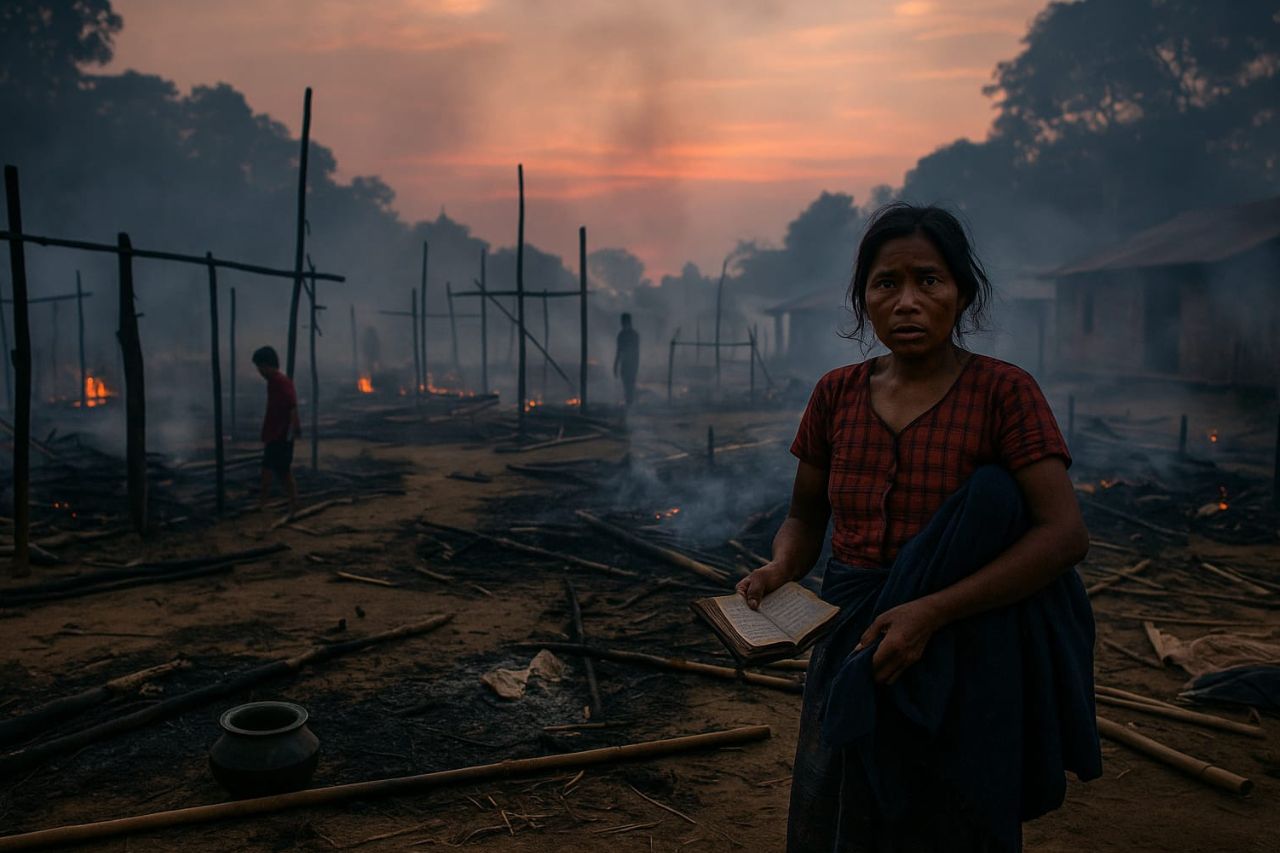On a humid September evening in 2024, there came a warning. Smoke rose over a small Chakma settlement in the Chittagong Hill Tracts (CHT). Within a few hours, by dawn, the homes had been reduced to charred bamboo skeletons.
Meagre possessions owned by residents, such as cooking pots, schoolbooks, and blankets, lay in ashes.The attack, which the survivors recall with horror as deliberate arson, was not an isolated incident.
It was one in a string of assaults against the region’s indigenous Jumma community. They have been living in perpetual fear of dispossession since.
The CHT is home to 11 distinct indigenous tribes, viz. Chakma, Marma, Tripura, Mro, Bawm, Pangkhoa, Lushai, Khumi, Khyang, Chak and Tanchangya. These communities are collectively known as the Jumma, which has had a history of being a flashpoint in Bangladesh’s politics of identity and land.
In 2024 and 2025, rights groups recorded multiple arson attacks against the community. These were often accompanied by intimidation and forced evictions.
According to documentation by the Parbatya Chattagram Jana Samhati Samiti (PCJSS), a total of 103 human rights violations were reported in the Chittagong Hill Tracts in the first six months of 2025 alone.
Communal and fundamentalist groups, as well as Muslim Bengali settlers and land grabbers were among the culprits. However, perpetrators also included personnel from security forces, law enforcement agencies, and army-backed armed groups.
In these incidents, 315 Jumma people were affected. Among them, 49 individuals were arrested, while 30 children were forcibly converted to Islam. Additionally, at least 300 acres of land were seized by outside companies, influential actors, and settlers.
Land dispossession and targeted violence against these tribes remains pervasive.
The International Chittagong Hill Tracts Commission (CHTC) characterised the situation as systematic persecution. Condemning the death of a Bawn youth in prison custody, the CHTC said that for two years now, the Bawm community, with a population just over 12,000 was subjected to systematic human rights violations and faced the risk of ethnic cleansing due to military crackdowns, attacks by pro-military armed groups, and mass arrests, all of which have led to the displacement of the community.
The report noted, “3500-4000 Bawm individuals, one-fourth of the entire community, have been forced to seek refuge in Mizoram State of India, and Chin State of Myanmar, where they are living in extremely precarious and inhumane conditions.”
The situation is no better for those who have remained in Bangladesh. According to the report, they face severe restrictions on movement, agricultural trade, and livelihood, which has pushed the entire community into a state of destitution and famine.
Land at the centre of conflict
At the heart of the crisis lies land. Indigenous organisations have alleged multiple times that powerful individuals, often linked to settler communities or politically connected actors, manipulate land records and deploy intimidation to seize property. In many cases, villages are threatened or attacked until families abandon their ancestral homes.
NGO reports detail how land-transfer moratoria in the CHT are routinely ignored. The Asian Indigenous Peoples Pact (AIPP) and the Land Coalition have documented scores of disputed allotments of forest and cultivable land to commercial projects, frequently without consent from indigenous residents.
The result has been the gradual erosion of traditional Jumma territories, further economically marginalising communities that have already been culturally uprooted.
Minimal state protection
Despite constitutional guarantees of equal protection, state institutions have offered little recourse. FIRs (First Information Reports) are occasionally lodged after violent incidents, but prosecutions are rare.
It is well-known that complainants often face counter-cases filed by alleged perpetrators or experience harassment from local police. Independent legal aid groups cite a backlog of unresolved land-dispute filings, some pending for decades.
The persistence of military camps across the CHT, despite provisions in the 1997 CHT Accord calling for phased withdrawal, only builds on top of the sense of insecurity. Victims frequently accuse security forces of bias, either by failing to intervene during attacks or by siding with settlers in disputes.
International concern
The pattern has drawn intensified international scrutiny. In June 2025, civil-society submissions to the UN Committee on the Elimination of Racial Discrimination (CERD) triggered urgent-action discussions. Alarm bells were sounded that over the potential of the CHT situation spiralling into a large-scale conflict.
The reports accused Bangladesh of failing to uphold obligations under the International Convention on the Elimination of All Forms of Racial Discrimination, particularly in preventing systemic displacement.
A constitutional duty
Enshrined within the Constitution of Bangladesh is the provision for protection of all citizens irrespective of ethnicity or religion. But, as indigenous advocates have pointed out, the reality in the CHT diverges sharply from that principle.
The 1997 CHT Accord, which intended to devolve authority, restore land, and demilitarise the region, remains only partially implemented after nearly three decades.
It is intuitively easy to understand that protecting indigenous property and cultural rights is not a matter of political discretion, but a constitutional and moral duty.
Internationally, Bangladesh has bound itself to obligations under ICERD, the UN Declaration on the Rights of Indigenous Peoples, and human rights treaties that demand effective remedies against discrimination and dispossession.
